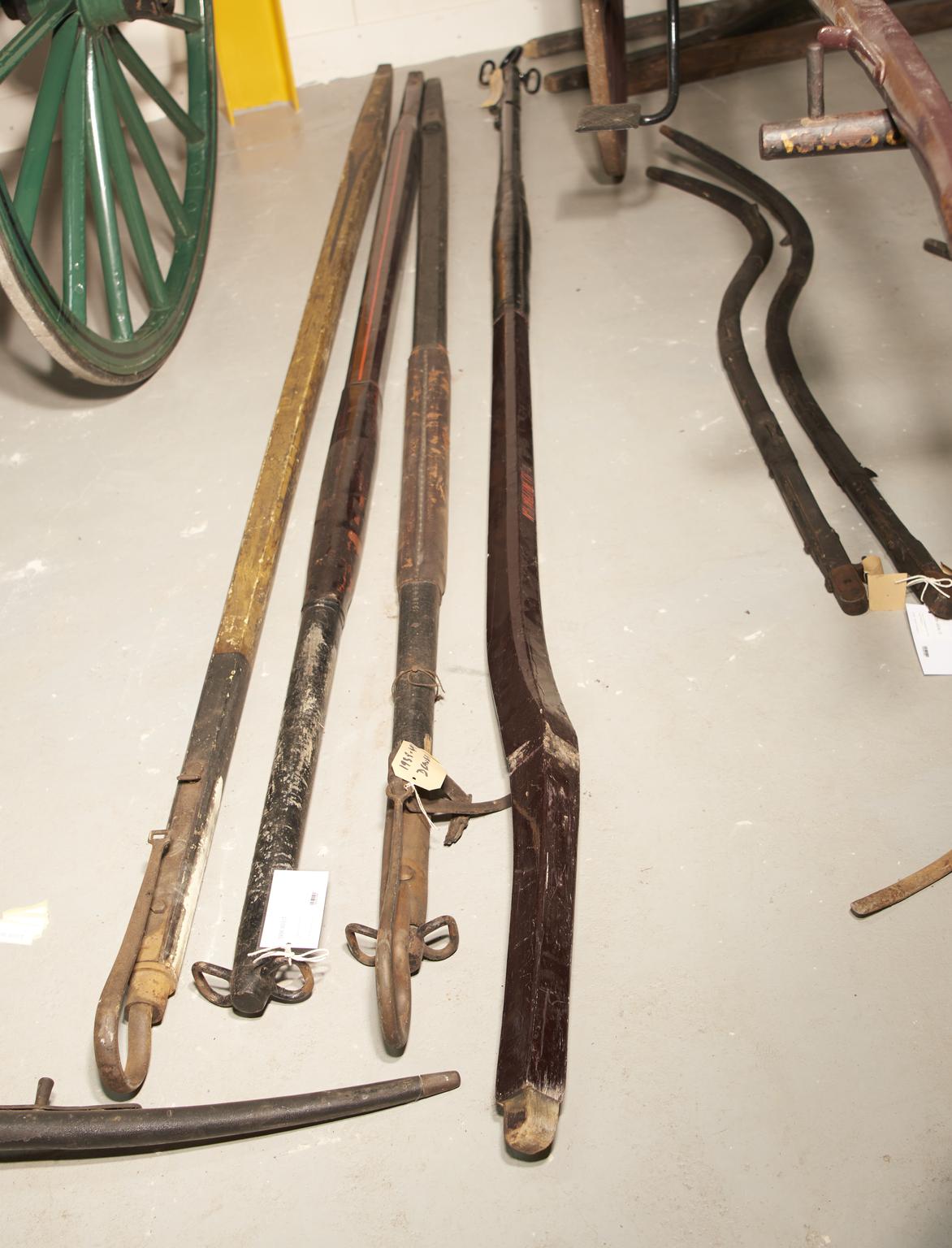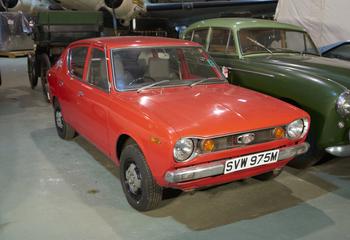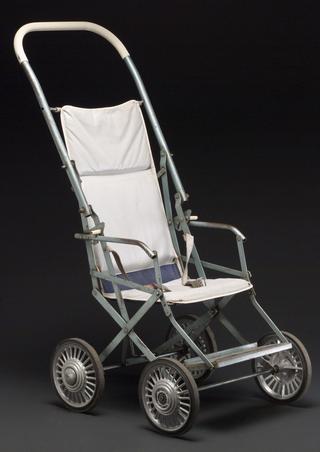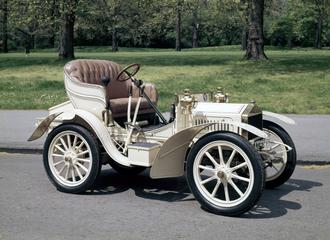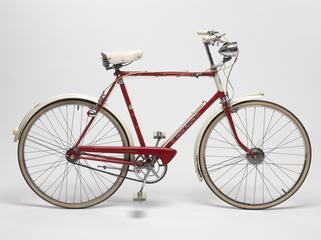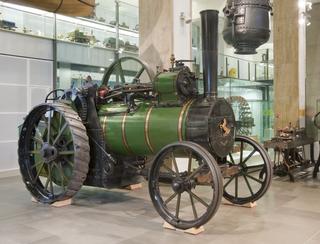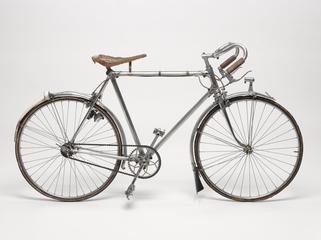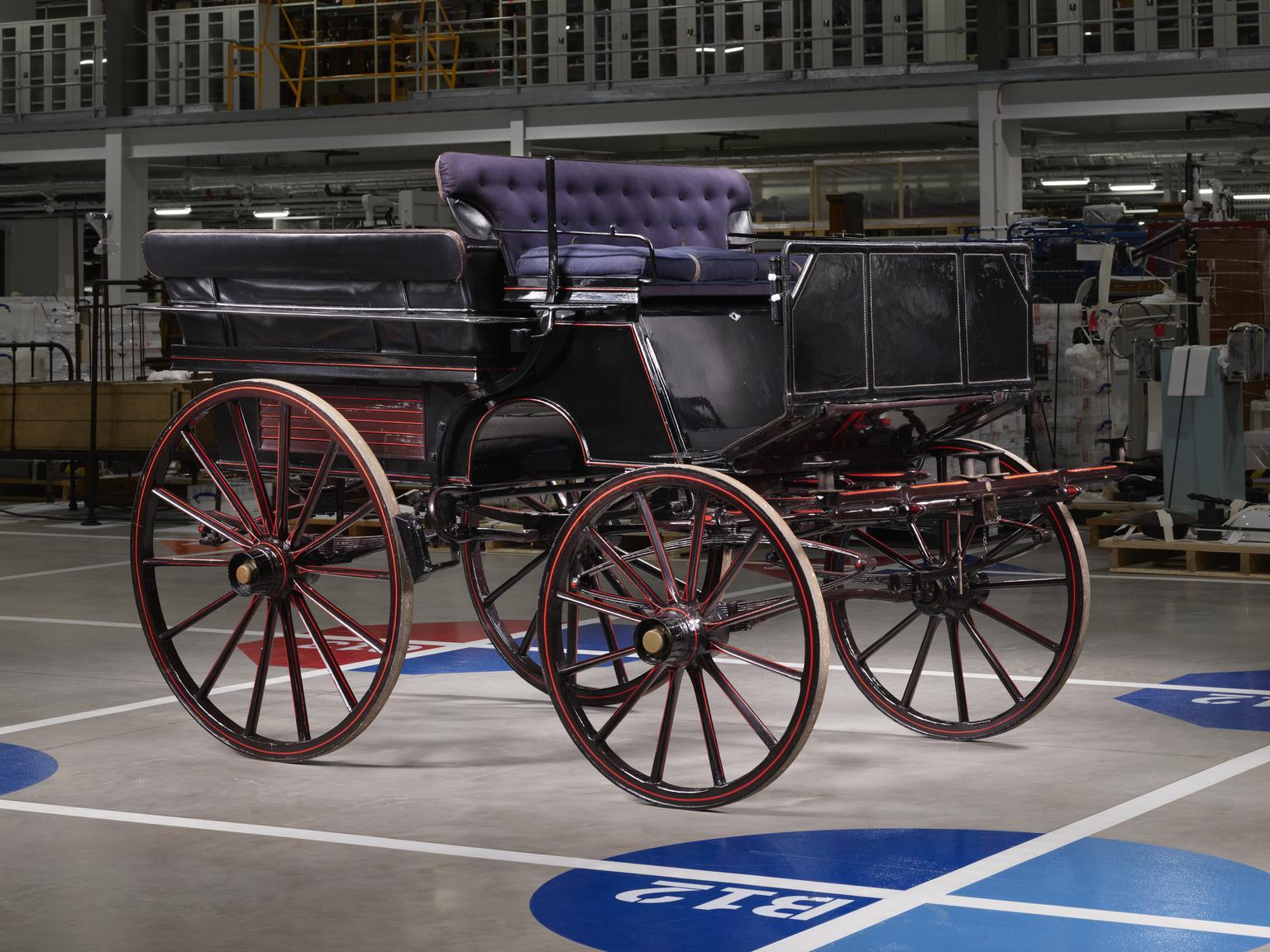
Waggonette
This wagonette is a four-wheeled carriage with two front seats, and a passenger box that could accommodate up to approximately 6 additional people. The back passenger seating is accessed by a half-door at the back of the vehicle, and storage for luggage is found beneath the front seats. To protect the driver and passengers from mud and upturned stones, there is a leather front dash, and two leather mud catchers over the wheels.
All the seating is covered with a dark blue cushioning, whilst the body and undercarriage of the vehicle is painted in the black and red livery of the British royal family.
The undercarriage includes two sets of springs, the front wheels having elliptical springs, and the back wheels having leaf springs. The back wheels also come with wooden spoon brakes, controlled by a driver’s side handbrake. The wheels have hub caps which are engraved “H. Allen, Builder, Caister”.
More
Wagonettes or ‘Waggonettes’ represent a highly diverse variety of carriages but were commonly characterised by their passenger seats which would face each other lengthwise at the back of the vehicle. Wagonettes of different designs could carry between 4-10 passengers in its back seats; be covered with leather or fabric cover/hood or left open topped; and could be pulled by a single horse up to a team of four.
The diverse design of wagonettes meant they were used for a variety of purposes, such as transporting luggage or people, or being used for sporting events like racing and hunting (wagonettes designed for this hunting are sometimes called shooting brakes).
This waggonette was owned by the British Royal Family and donated by King Edward VIII in 1936. This waggonette has fine upholstery and elliptical spring suspension, indicating that it might have originally been used by the Royal Family for pleasure as a luxury transport.
- Measurements:
-
overall: 1740 mm x 1670 mm x 2680 mm,
- Materials:
- paint , felt , leather , metal (unknown) and rubber (unidentified)
- Object Number:
- 1936-602/1
- type:
- waggonettes
- Image ©
- The Board of Trustees of the Science Museum




